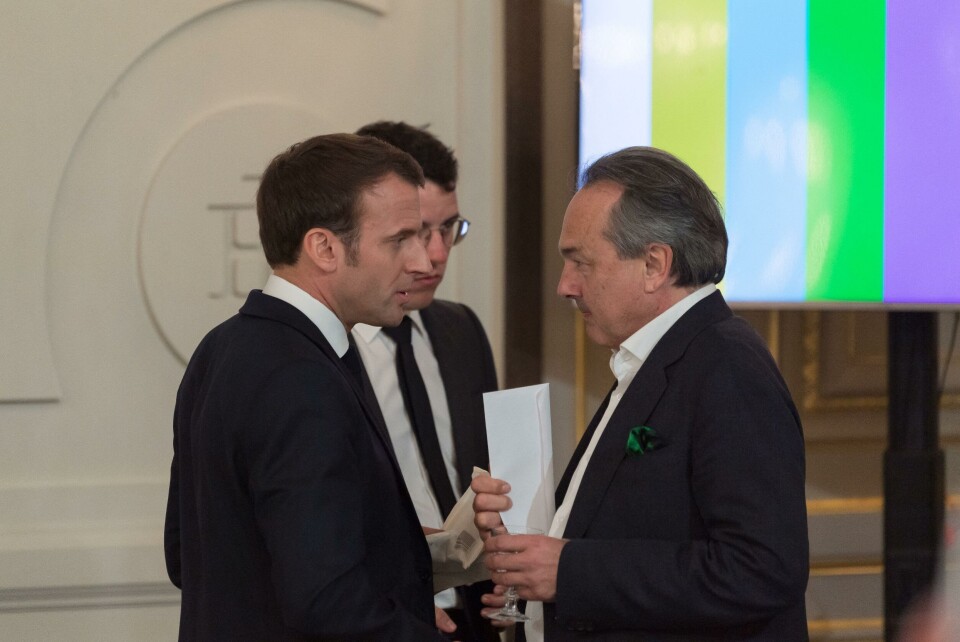-
The chaos on France's ski slopes is so sad, says retired instructor
Reader says she refused to teach children not wearing safety gear
-
Where to find good Indian food and curry ingredients in rural France
Connexion readers share their tips on finding spices that hit the spot
-
Ski helmets should be compulsory in France
Two readers share their views on risk and danger on the slopes
Gilles Kepel: ‘Atmospheric Jihadism’ is latest threat to France
Middle East specialist Gilles Kepel speaks to Théophile Larcher about how the terrorist threat in France has evolved in recent years

France and other western societies are now battling a revised form of Islamist terrorism – one that lacks structural command and instead spreads hate online and in sermons with the aim of inciting ‘lone wolf’ operators.
Gilles Kepel, one of France’s most respected political scientists on political Islam and the Arab world, has dubbed this ‘atmospheric jihadism.’
He says the aim is to stoke constant fear among the public and create a feeling of civil war.
Mr Kepel, a regular on TV debates and conferences and author of more than 20 books about political Islam, said: “Islamic terrorism no longer has a structural organisation giving orders.
“What you have instead is an atmosphere spread out through internet channels or preaching sermons.”
He says it is the latest challenge facing France and the west generally in the war on jihadism – a 50-year long process that started in 1979 during the Soviets’ war in Afghanistan and which has morphed tactically many times.
‘Entrepreneurs of hate’
It is now pushed by what Mr Kepel calls ‘entrepreneurs of hate’, jihadists who target a specific group of personalities with no direct killing order but rather leaving that decision to those who have been indoctrinated.
He gave the example of Abdoullakh Anzorov, 18, a Russian citizen of Chechen origin with refugee status which was given to his parents when he was a minor, who decapitated teacher Samuel Paty in October, 2020 in a terrorist attack which shocked the nation.
Fired up by false information posted on Facebook and Whats App about Mr Paty, he drove from Evreux in Normandy, to Conflans-Sainte-Honorine (Yvelines) to commit the attack.
Mr Kepel is acutely aware of the phenomenon – he was on a list of public figures to be murdered on a Facebook Live message posted by French-born jihadi Larossi Abballa in 2016.
‘Atmospheric jihadism’
‘Atmospheric jihadism’, he says, follows the lessened influence of ISIS, a militant Islamist group and unrecognised state that is structured around several conflicts in the Levant and Europe through recruitment cells.
France paid a heavy price during the height of ISIS’s power, with the Charlie Hebdo and November 13, 2015 Paris attacks and attacks in Nice in 2016 and 2020, among others.
While the UK has not been spared, Mr Kepel attributes the most deadly of the attacks there – the 7/7 bombings in London in 2005 – to the second stage of Islamist terror, in which Al Qaeda’s tactic was to generate as many strikes as possible from the Muslim community in European countries.
The reality is that most victims of terrorist attacks were from the Muslim community.
He said the war in Iraq ended the second stage, creating the ISIS stage.
France has deployed a legislative arsenal to counterattack ‘atmospheric jihadism’ with the Loi confortant le respect des principes de la République, dubbed the ‘law against separatism’.
The law – enacted on August 24, 2021 – characterised as an offence anyone putting someone in life-threatening danger by releasing private or professional information.
It also looked to scrutinise significant donations to associations from foreign organisations.
“Separatism is unacceptable because it introduces division leading to civil war situations,” said Mr Kepel.
He explained that this originates with their interpretation of Sharia law, severing believers from the ‘infidel’ laws of the state.
Need to tighten regulations on big tech
Mr Kepel agreed that combating ‘atmospheric jihadism’ requires tightening regulations on big tech companies whose apps facilitate communication, but said this could prove difficult as many websites are hosted overseas.
Newspapers in the US and the UK have pointed fingers at France’s handling of Islamist terror, suggesting its strict enforcement of laïcité, one of France’s core principles establishing a clear separation between religion and the state, makes it Islamophobic.
Mr Kepel, however, pointed out that more ‘communitarian’ countries were also attacked, listing Germany, the UK and the US, and explained that the Islamophobia argument was pushed by pro Muslim Brotherhood groups, which are heavily implanted in the UK.
While Islamist terrorism had a decisive impact in the rise of the far right in France, Mr Kepel said the phenomenon affected other European countries as well, listing Denmark, Sweden and the Netherlands.
There are similarities to draw between extremist ideas from Islamist terrorism and far-right movements, he said, taking the example of Anders Breivik, the perpetrator of the 2011 Norway attacks which killed 77 people.
Both ideologies represent “a fragmentation of the universalism and inclusiveness founding our democratic model,” Mr Kepel said.
A problem that is more unique to France, he added, is the fast decline in Arab studies, which have always held a prominent place in the country.
Mr Kepel gave the example of a speech by President Macron defending the ‘law against separatism’ where no Arabic translation was given until a polemic surrounding an unofficial version which translated ‘Islamist’ as ‘Muslim’.
Mr Kepel spoke to The Connexion ahead of a conference organised by the Monaco Méditerranée Foundation in Monaco in February.
Related articles
Study reveals lasting impact of Nice terror attack on children present
Career change in France: Paris attack made me reflect on what I wanted
























